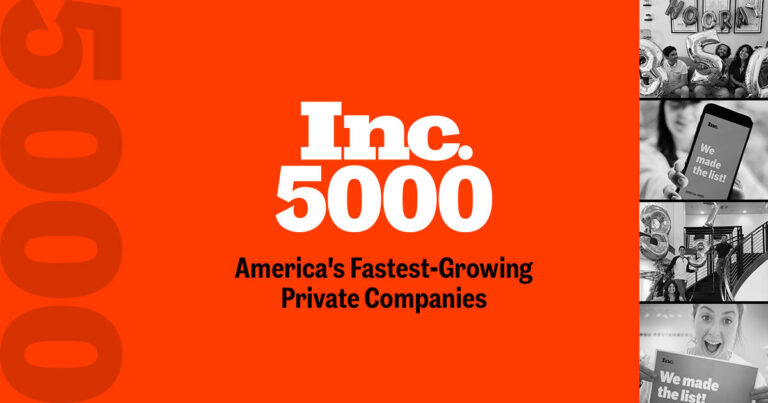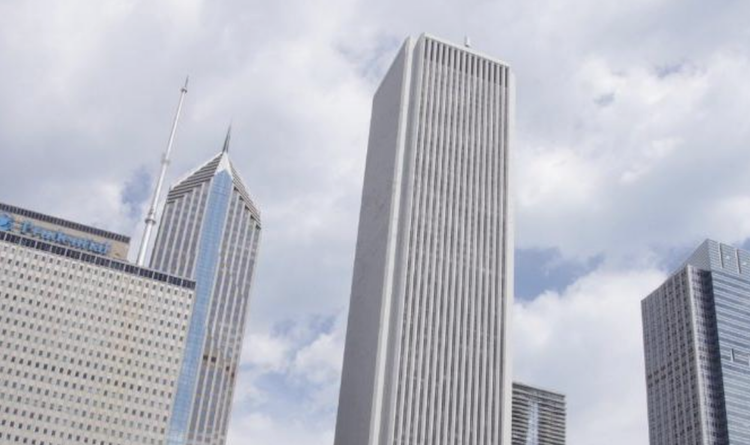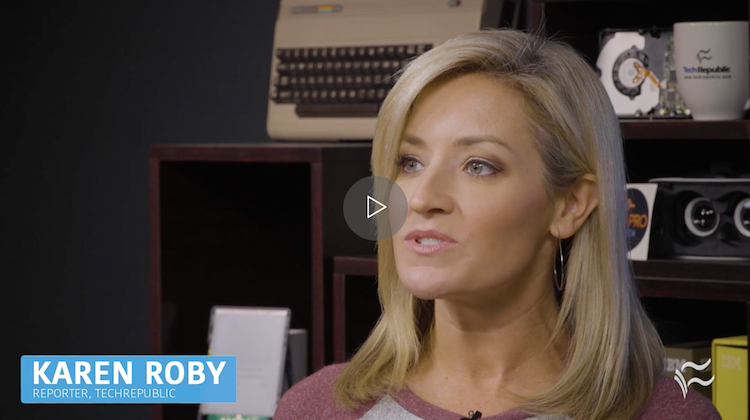When Chris Gladwin and Penny Pritzker first announced P33, a new initiative designed to elevate Chicago to a top tier tech hub, some weren’t fazed. Chicago tech, business and civic leaders have talked for years about how to raise awareness about Chicago’s tech industry, and attract mor ...
Read MoreAuthor: Jackie Biro
The 10 most in-demand tech jobs of 2019
Experts predict companies will continue to hire cybersecurity, AI, and developer roles throughout the year.
Read MoreBeing only two weeks into 2019, it’s hard to know what the rest of the year will hold for Chicago’s tech startups.
But to try to get a sense of what to expect, Chicago Inno talked to venture capitalists and startup experts throughout the city to help gauge what might happen next based on how 2018 ended.
Their answers varied, but they mostly agreed that food and CPG startups will receive more attention and investments this year, while the super-hot logistics industry maintains the momentum it gained in 2018.
They also believe that through initiatives like P33 and J.B. Pritzker’s role as governor, Chicago’s reputation as a tech hub will elevate to new heights, and that regardless of Chicago’s Amazon loss, the city will still attract expanding tech companies.
Below are five Chicago tech predictions for 2019.
1.Despite Amazon loss, Chicago will land more coastal tech office expansions
Shortly after Amazon announced it was putting its second headquarters in Long Island City and Crystal City, Virginia, skipping Chicago and several other cities, Salesforce announced plans to invest $475 million in a new office tower in the Windy City.
“There were probably some very specific things Amazon was looking for that maybe Chicago just didn’t check the boxes on,” said Dana Wright, a managing director at MATH Venture Partners. “But from just a jobs perspective, we’re seeing a lot of [companies] putting satellite offices here.”
In addition to Salesforce, both Facebook and Google have recently made major office expansion plans in Chicago, and Wright said she believes the trend will continue. Data shows Chicago is the second most popular destination for companies based in the Bay Area, Seattle, Boston and New York to open new office space, behind only Austin.
“I don’t think the Amazon thing is a big deal,” said Jonathan Ellis, the founder and managing director at Sandalphon Capital. “And I don’t think it would necessarily have been a good thing for the tech sector in the near-term. I think it would have caused some disruption to the talent market.
“They are only one company,” he continued. “And beyond them, you have Google expanding, Facebook expanding and Salesforce expanding. The thing that people are worried about not happening is happening anyway.”
2. Food and CPG startups gain momentum
Since RXBAR was acquired for $600 million by Kellogg in 2017, entrepreneurs and investors have taken a closer look at the opportunities in the food and consumer packaged goods industry. Chicago’s Farmer’s Fridge continues to grow its smart-fridge meal business as it closed a $30 million funding round in September. And newer companies, such as antioxidant lemonade startup Poppilu and high-protein hummus company Prommus, have popped up with similar health-conscious products that aim to capitalize on changing food trends.
“I’m seeing more food, beverage and CPG investors and startups popping up,” Ellis said. “I would probably attribute some of that to RXBAR. They showed how to quickly scale to an exit in the space.”
Last year, Kraft Heinz launched a startup incubator and investment fund in Chicago to connect with early-stage companies. And Springdale, Arkansas-based Tyson Foods also launched an investment fund worth $150 million in Chicago to be at the forefront of food innovation.
“We’ve been talking about our portfolio and how concentrated we want to be [on] anything restaurant or food-related because there’s been so many deals coming through that way,” Wright said.
3. Logistics and supply chain companies will continue to crush
At the end of 2017, when local experts made their predictions for 2018, many predicted the logistics tech industry in Chicago would take off. And in many ways, it did. Chicago’s pillar logistics companies ShipBob, project44, FourKites and Bringg all raised large rounds of funding to help them grow, and nationally, Chicago started to become recognized as a supply chain hub.
Looking ahead at 2019, many think the industry will just continue to get stronger.
“The logistics and supply chain stuff still has room to run,” Ellis said. “It’s a huge market, and a lot of later stage VC firms I’ve talked to are oriented around tracking that sector.”
Being in the Midwest and centrally located between the coasts, it’s fitting that Chicago would have significant and growing logistics tech companies, said Hyde Park Angels Managing Director Pete Wilkins.
“Chicago has always had the history of being a hub of America and how things are moved,” Wilkins said. “We have this legacy logistical framework because we move so much product from coast to coast.”
4. J.B Pritzker’s role as governor helps grow Chicago’s tech industry
Since Pritzker was elected governor, many are interested to see how his role as governor affects startup and business activity in Chicago and throughout the state of Illinois. Even before he jumped into politics, Pritzker has shown his dedication to growing Chicago’s startup industry. Back in 2012, he was one of the founding partners that helped finance the creation of the city’s biggest tech incubator, 1871.
“I would think that belief in the growth of the tech sector to help grow the state of Illinois is something that would continue with [Pritzker] in this new role,” said Illinois Technology Association CEO Julia Kanouse. “We have to continue to be a technology-friendly city and region to attract those companies in terms of what our tax incentives look like and in terms of what regulation looks like.”
Generally, business-friendly policy looks like efficient and well-maintained transportation systems, access to state-funded research programs, and regulations that protect consumers and businesses from bad actors, Kanouse said.
“We don’t want to put more onerous regulation in place for the city of Chicago or the state of Illinois than is happening elsewhere in the country, or we put ourselves at a disadvantage,” she said.
5. Chicago’s reputation as a tech hub strengthens
When Chris Gladwin and Penny Pritzker first announced P33, a new initiative designed to elevate Chicago to a top tier tech hub, some weren’t fazed. Chicago tech, business and civic leaders have talked for years about how to raise awareness about Chicago’s tech industry, and attract more companies and talent.
“There’s a lot of critics that say ‘What’s next?’” said Wilkins, who serves on the P33 committee. “But what’s next is to take the vision and start to develop the strategy so we can execute with small wins.”
The details about what the vision and strategy look like are still unclear, but Kanouse said she thinks the initiative could really make a difference in 2019, mainly because local corporations like United Airlines and Allstate Insurance are involved.
“I think what’s different about [P33] than maybe what has happened in the past is that some of the more traditional companies are at the table, not just tech companies,” she said. “You have some of the Fortune 500 companies based in Chicago really actively involved and engaged in it, and I think that could be the differentiating factor.”
And beyond the work being done for P33, Kanouse said tech companies, investors and civic leaders alike all need to do their part in spreading Chicago’s startup message.
“There’s a lot more tooting our own horn that has to happen in terms of how powerful the tech scene here actually is,” she said.



